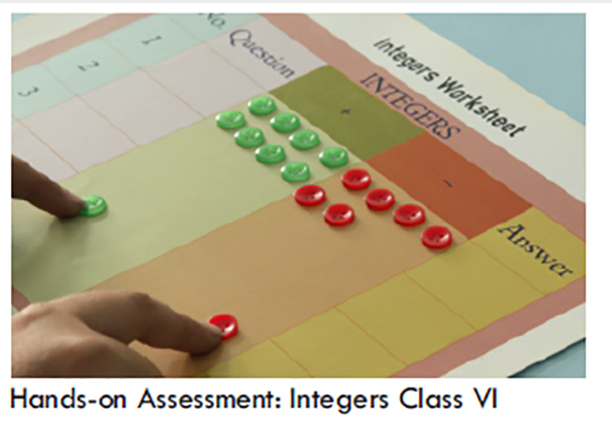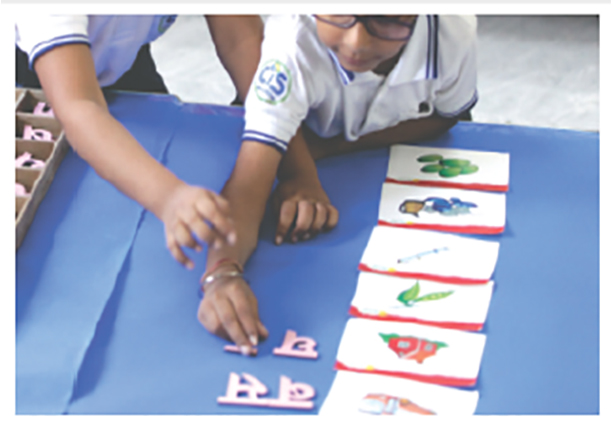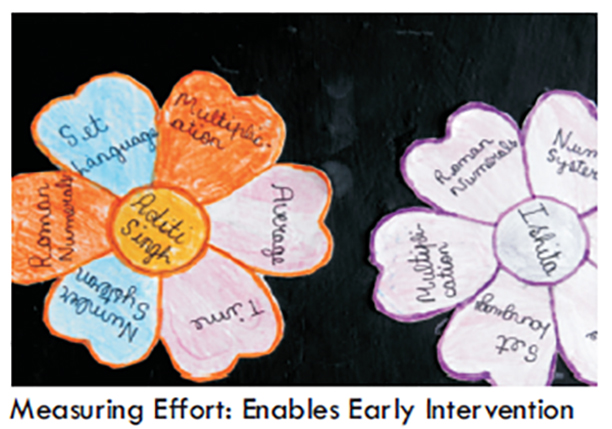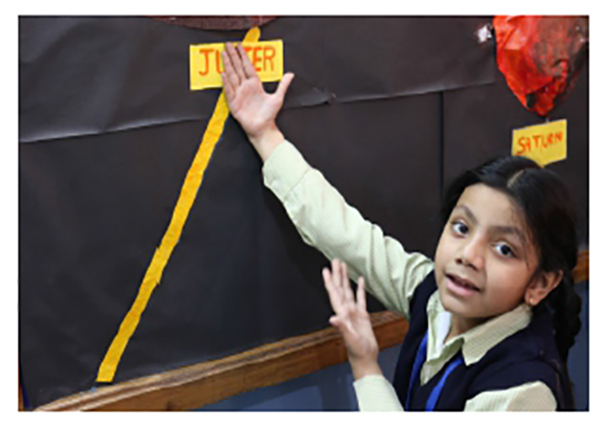ASSESSMENT
 On-going immediate feedback serves as the control of error. Feedback is followed by immediate corrective action.
On-going immediate feedback serves as the control of error. Feedback is followed by immediate corrective action.
 Assessments are based on the principle of ‘Compete with Yourself!’
Assessments are based on the principle of ‘Compete with Yourself!’
 When children compete with themselves, they try harder, give up less often, and accomplish more.
When children compete with themselves, they try harder, give up less often, and accomplish more.





CISCE SAYS
CISCE SAYS: EVALUATION
 Evaluation, on the other hand, is to gauge a child’s achievement and performance against expected learning outcomes.
Evaluation, on the other hand, is to gauge a child’s achievement and performance against expected learning outcomes.
 The Council’s curriculum advocates each and every child’s holistic development. Evaluation should extend beyond academic knowledge, and needs be viewed as broader and more comprehensive, taking into account different aspects of the child’s total behaviour, that is, knowledge, skills, interests, attitudes and values.
The Council’s curriculum advocates each and every child’s holistic development. Evaluation should extend beyond academic knowledge, and needs be viewed as broader and more comprehensive, taking into account different aspects of the child’s total behaviour, that is, knowledge, skills, interests, attitudes and values.
 It should therefore not be based only on written work, but also include different forms of assessment including project work, experimentation, oral and aural work, etc. Evaluation should thus provide a more complete picture of a child’s accomplishments, and should also be based on multiple sources / evidences.
It should therefore not be based only on written work, but also include different forms of assessment including project work, experimentation, oral and aural work, etc. Evaluation should thus provide a more complete picture of a child’s accomplishments, and should also be based on multiple sources / evidences.
CISCE SAYS: ASSESSMENT
 Assessment and evaluation are different processes that are both necessary, important and integral part of the teaching and learning process.
Assessment and evaluation are different processes that are both necessary, important and integral part of the teaching and learning process.
 Assessment for learning provides teachers and children important information about children’s learning gaps, strengths, weaknesses and difficulties, so that timely corrective measures can be taken.
Assessment for learning provides teachers and children important information about children’s learning gaps, strengths, weaknesses and difficulties, so that timely corrective measures can be taken.
 Assessment process should focus on collecting information on all aspects of a child’s development, and not be only subject or textbook based.
Assessment process should focus on collecting information on all aspects of a child’s development, and not be only subject or textbook based.
 Assessment can be undertaken in multiple ways: oral, written, teacher observation, discussion, dialogue, project work, model making, posters, experiments, group and individual activities, games, quizzes and child’s portfolio, etc.
Assessment can be undertaken in multiple ways: oral, written, teacher observation, discussion, dialogue, project work, model making, posters, experiments, group and individual activities, games, quizzes and child’s portfolio, etc.
EVALUATION
 Tier end evaluation is carried out once the goals for that Tier have been mastered.
Tier end evaluation is carried out once the goals for that Tier have been mastered.
 Evaluation booklets are provided for each child for each subject and theme.
Evaluation booklets are provided for each child for each subject and theme.
Personal Development Plans
 Evaluation leads to self-diagnostic feedback and personal development plans.
Evaluation leads to self-diagnostic feedback and personal development plans.
 These plans answer the question, “What next?” for every child in the class.
These plans answer the question, “What next?” for every child in the class.
 They allow greater self-knowledge and higher levels of improvement.
They allow greater self-knowledge and higher levels of improvement.
 With such detailed feedback, parents become better partners in their child’s learning.
With such detailed feedback, parents become better partners in their child’s learning.
 Evaluation provides standardization.
Evaluation provides standardization.
 These plans reduce teacher workload and improves effectiveness of evaluation
These plans reduce teacher workload and improves effectiveness of evaluation
Effort as Progress
 Effort leads to progress. Progress is both acknowledged and celebrated. This creates in every child an intrinsic motivation to succeed.
Effort leads to progress. Progress is both acknowledged and celebrated. This creates in every child an intrinsic motivation to succeed.
 Every child is also challenged and supported at his / her level regardless of class size, as every child gets his / her personal development plan.
Every child is also challenged and supported at his / her level regardless of class size, as every child gets his / her personal development plan.
